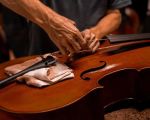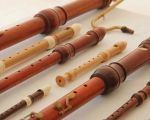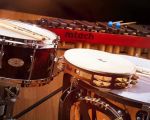Choosing the Best Piano for a Classical Musician: Expert Tips
As a classical musician, selecting the right piano is an essential part of your musical journey. Whether you're a student, a professional performer, or someone passionate about classical music, your piano will be your companion for years to come. The sound, touch, and feel of the piano you choose will deeply influence your performance and practice. In this article, I’ll guide you through the crucial aspects of selecting the best piano that suits your needs, focusing on grand pianos, upright pianos, and even digital alternatives. I’ll also share my own experiences and insights on what makes a great piano for classical music.
1. The Importance of Sound Quality for Classical Musicians
The sound quality of a piano is perhaps the most important factor to consider when choosing one for classical music. As a classical musician, you need a piano that can deliver a full, rich, and clear tone that resonates throughout the hall or room. The piano should have a broad dynamic range, capable of producing soft, delicate notes as well as powerful, forceful sounds.
Having played on various pianos throughout my career, I can confidently say that the sound of a piano is not something you can compromise on. The tonal quality should be balanced, with a good blend of warmth and brightness, without any harshness or muddiness in the bass or treble. I recommend spending time playing different pianos before making a decision, and listen carefully to how they respond to your touch, from soft pianissimo to loud fortissimo passages.
2. Grand Pianos: The Gold Standard for Classical Music
When it comes to pianos for classical music, grand pianos are often considered the gold standard. Their larger size and longer strings allow for more powerful sound production and greater tonal depth. The action of a grand piano—how the keys feel when pressed—is also superior, providing a smooth, responsive touch that’s essential for precise playing in classical music.
I personally recommend considering a grand piano if you have the space and budget for one. The Steinway & Sons Model D is a popular choice among professional musicians due to its incredible sound and touch. However, brands like Yamaha, Kawai, and Bösendorfer also make excellent grand pianos that are favored by many pianists. A grand piano’s superior action and resonance make it the ideal choice for serious classical musicians.
3. Upright Pianos: A Practical Option for Smaller Spaces
Not everyone has the space or budget for a grand piano, and that’s where upright pianos come in. While upright pianos are more compact and affordable than their grand counterparts, they can still provide a wonderful playing experience for classical musicians. These pianos often have a slightly less powerful sound compared to grand pianos, but they can still offer a rich, full tone that’s perfect for practice and performance in smaller spaces.
One of the key benefits of an upright piano is its size. If you’re living in an apartment or a house with limited space, an upright piano might be the best option for you. Brands like Yamaha and Kawai make fantastic upright pianos that are known for their solid construction and impressive sound. In my own experience, I’ve found that a well-maintained upright can hold its own in terms of tonal quality and playability, making it a great choice for classical music lovers with space constraints.
4. Digital Pianos: Convenience and Versatility
In recent years, digital pianos have become increasingly popular, particularly among musicians who require flexibility and convenience. While digital pianos may not fully replicate the sound and touch of an acoustic piano, they offer several advantages, including portability, the ability to play with headphones, and a variety of features such as different instrument voices and recording capabilities.
If you live in a shared space or need to practice without disturbing others, a digital piano might be an excellent option. Brands like Roland, Yamaha, and Korg produce high-quality digital pianos that are used by professional musicians for practice, teaching, and even performance. As a classical musician, I’ve used digital pianos during my travels and for practice sessions, and while they can’t completely replace an acoustic piano, they’re an incredibly versatile tool in your arsenal.
5. Key Features to Look for in a Piano
When choosing a piano for classical music, several key features should be considered beyond just the brand and type of piano. The touch and action of the keys, for example, are crucial for playing with accuracy and expression. A piano with responsive action allows for subtle changes in dynamics, enabling you to express the full emotional depth of classical music.
Another important feature is the sustain pedal. For classical music, the sustain pedal plays a vital role in creating smooth, flowing transitions between notes. The pedal should feel sturdy and offer a natural, responsive action. I recommend testing the sustain pedal to ensure that it works well and doesn’t feel too stiff or too soft.
6. Budget Considerations: Finding the Right Balance
Choosing the right piano comes down to your budget, but it’s important to remember that a piano is an investment in your musical future. While grand pianos are generally more expensive, they can be worth the investment if you’re a serious classical musician. However, if your budget is more limited, an upright or a high-quality digital piano can still offer excellent performance and sound.
Don’t forget to factor in additional costs such as regular tuning, maintenance, and potential repairs. Pianos require ongoing care to maintain their sound quality, so it’s essential to keep that in mind when calculating your overall budget. I’ve found that buying a well-maintained second-hand piano from a trusted seller can be a good way to get a high-quality instrument without breaking the bank.
7. Conclusion: Making the Right Choice for Your Musical Journey
Choosing the best piano for a classical musician is a deeply personal decision. Whether you opt for a grand, upright, or digital piano, the most important thing is that the piano feels right for you and suits your needs as a musician. Take your time to try out different pianos, listen to their sound, and feel the action of the keys. Your piano will be your partner in music for years to come, so make sure it’s one that inspires you to play your best.
For further information on selecting the perfect piano for your needs, or to explore a wide range of piano options, visit [Beat Trigger] to get expert advice and top recommendations on the best pianos for classical musicians.








